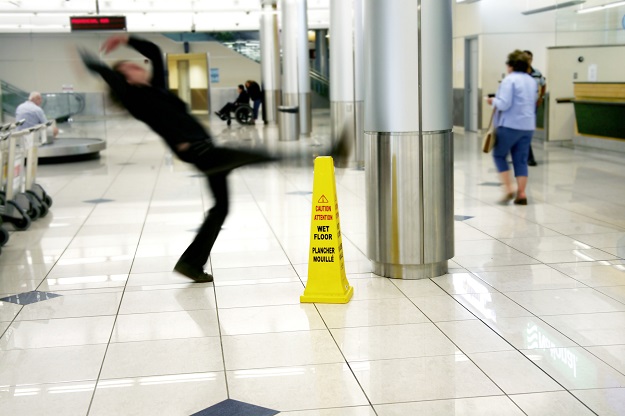When you’re thinking of costs for your business, you consider things like rent, utilities, and insurance. What you maybe haven’t thought of is costs that could be associated with accidents.
Here’s why you should consider these costs. Every year, businesses spend an estimated $11 billion on slip and fall cases. And, in addition to the financial costs, litigating, and paying damages for injuries to employees or customers can hurt your business’s reputation.
So what can you do to protect your business from a slip and fall lawsuit? Keep reading to learn more.
What is Your Business Responsible For?
The key to protecting yourself from slip and fall lawsuits is understanding your business’s liability. In other words, if someone injures themselves at your business, what can you be held responsible for?
In general, business owners are required to provide reasonably safe conditions on any property they oversee where employees and customers will be.
The key word here is reasonable.
For instance, if you own a restaurant, it would not be considered within your reasonable duties to hire someone whose sole job it was to mop up every ounce of liquid that ever spilled on the floor. It would be reasonable, however, to instruct employees to monitor for spills every 15 minutes. And, if this policy was not enforced and a spill went unnoticed, you could be held liable for it.
This is especially true if it can be proven that you were aware of the hazard and did nothing to rectify it. For instance, say that the sidewalk leading up to your business becomes frozen over, and multiple customers inform you of it. If you do nothing to clear the slippery walkway, your failure to act could be held against you.
Read here to learn more about business’s liabilities and what employees and customers can sue for.
Easy Ways to Prevent a Slip and Fall Lawsuit
Of course, there is no way a business owner could eliminate every potential hazard for customers and employees. There are, however, a few simple steps you can take to avoid common causes of slips and falls so you can keep focusing on your business performance.
Poor Lighting
It’s important to make sure both your business and parking area are adequately lit. This prevents customers and employees from tripping over curbs or potholes.
Physical Obstacles
When you are laying out the inside of your store, make sure that items are not places so that they would obstruct someone’s path. These include tables or chairs placed in walkways, electrical cords, or even fallen merchandise.
Congested Entrances
It’s important that the entrances and exits to your building are well designed so that they do not become excessively crowded during high volume times. Having people elbow their way through crowds to enter or exit your business can increase risks of falls.
Learn More About How to Keep Your Business Prepared
Protecting your business from a slip and fall lawsuit is just one way to prevent losing your hard earned money.
Looking for more ways to minimize loss and maximize profits? Check out this guide to see why you should consider franchising your business.

